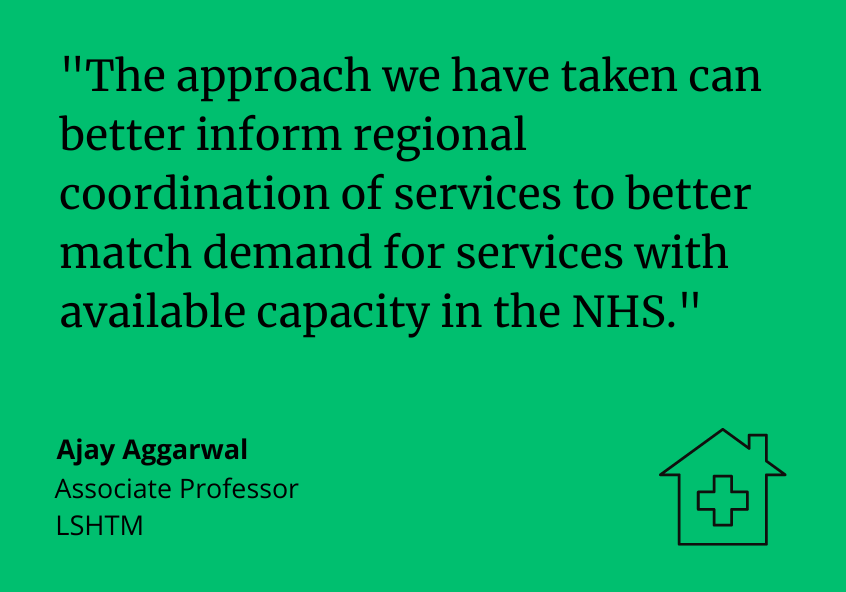Regional coordination needed to free up cancer surgery capacity in NHS
London School of Hygiene & Tropical Medicine https://lshtm.ac.uk/themes/custom/lshtm/images/lshtm-logo-black.png Wednesday 3 May 2023
The management of the cancer backlog following the COVID-19 pandemic is one of the UK’s major political and clinical issues. Figures for September 2022 show for example that only 61.7% of patients are receiving treatment within 62 days of a referral, compared to 82.3% in the period between April 2017 and March 2018. Short-term public health solutions are urgently required to address current delays in treatment.
In the literature, increasing treatment capacity has focused on speeding up management processes and trialing different service delivery models within hospitals. However, no studies have presented a systems-wide approach for estimating the potential spare capacity at a national level to support planning of cancer care surgical capacity. There has also been no exploration of the impact of patient mobility (how often patients decide to go to another hospital other than their nearest one for treatment) on spare capacity in hospitals.
In our new study in The Lancet Europe Regional Health – Europe, we analysed health records of approximately 150,000 patients receiving breast and colorectal cancer surgery across 160 NHS hospitals pre-pandemic between 2016 and 2018. Potential spare capacity across the NHS was identified using a new method based on six-month moving averages of the number of surgeries conducted in a specified time frame. Important patterns were observed with respect to identifying potential spare capacity. Namely, hospitals that were identified with a ‘net loss’ of patients (in other words, hospitals that performed fewer procedures than expected because local patients travelled to other more distant hospitals for treatment) had potentially more spare capacity than hospitals with a ‘net gain’ of patients.
The findings demonstrate the need for regional coordination to optimise the use of cancer surgery capacity through an assessment of patient referral patterns and existing hospital level workload to better match demand for services with available capacity in the NHS. This methodology can be translated across a range of cancer surgeries to quantify and establish regionally where surgical capacity is available to support national service planning when more recent post-pandemic data is available. Further work will be needed to determine exactly how these estimates of additional hospital capacity could be mobilised in real terms, considering current staffing levels and bed availability, if the backlog in patients receiving treatment is to be tackled efficiently.
LSHTM's short courses provide opportunities to study specialised topics across a broad range of public and global health fields. From AMR to vaccines, travel medicine to clinical trials, and modelling to malaria, refresh your skills and join one of our short courses today.